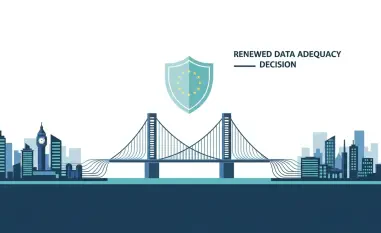In an era where digital transformation is reshaping industries, private equity firms find themselves thrust into the forefront of a pressing challenge: cybersecurity. The rapid escalation in cyber threats has not only intensified the vulnerability of digital assets but also prompted these firms to revisit their strategies. As data becomes a key driver of business decisions, safeguarding this valuable resource is no longer just a regulatory necessity but a critical factor for sustainable financial progress. The landscape of cyber threats is evolving at such a pace that companies are compelled to adopt an increasingly proactive posture to mitigate risks while also capitalizing on growth opportunities. By embedding robust cybersecurity measures, private equity companies are not only protecting themselves but are also poised to enhance the value proposition of their investments, gaining an edge in a competitive market.
The Rising Threat of Cybersecurity Breaches
Cybersecurity breaches have emerged as a stark reality for companies, forming a subject of increasing concern with every passing day. Spain’s position as a key target for cybercriminals exemplifies the global surge in cyberattacks, particularly ransomware incidents. These attacks have grown formidable, driven by sophisticated hacking techniques that threaten financial stability and corporate credibility. The ramifications of ransomware are not just economic; they erode trust among stakeholders and disrupt business ecosystems. This pattern of escalating threats highlights the critical need for private equity firms to recalibrate their strategies and prioritize cybersecurity. By reinforcing their defenses, these firms can better shield their portfolios from the debilitating effects of cybercrime and ensure continuity in their operations. Cybersecurity is becoming a crucial ingredient in securing long-term success in an interconnected, volatile digital economy.
Vulnerabilities in Private Equity Firms
Private equity firms, characterized by their diverse portfolios and strategic interests, hold a trove of sensitive information that can entice cybercriminals. Handling large volumes of confidential data across sectors like healthcare, technology, and finance makes them susceptible to malicious threats. Despite this, the sector has displayed a tendency to undervalue cybersecurity during due diligence endeavors. This oversight often arises from the traditional focus on financial and operational audits, leaving cyber assessments relegated to a secondary position. The absence of specialized cybersecurity teams further exacerbates their exposure, creating blind spots that hackers can exploit. Recognizing these vulnerabilities is paramount for these firms as they navigate this new reality. Amplifying focus on cybersecurity, particularly within due diligence processes, can forestall potential breaches and their associated repercussions. Such strategies not only protect investments but also underscore a firm’s commitment to securing sensitive data, ultimately safeguarding both reputation and financial health.
Regulatory Pressures and Compliance
Navigating the complexities of cybersecurity is intensified by evolving regulatory frameworks, notably within the European Union, aimed at ensuring digital resilience. Directives such as the Digital Operational Resilience Act (DORA) and the Network and Information Security Directive (NIS2) underscore the necessity for stringent cybersecurity protocols. For the private equity sector, non-compliance with these regulations could entail substantial penalties, including significant financial fines. This regulatory landscape makes it imperative for firms to proactively integrate robust cybersecurity measures. As these directives exert mounting pressure, adhering to them not only avoids punitive actions but also fortifies stakeholder confidence. Compliance is becoming essential not merely to avert fines but as part of strategic corporate governance. Private equity entities must now pivot towards proactive engagement with cybersecurity, which can transform compliance from a daunting obligation into a pathway for augmenting their credibility and operational resilience.
Beyond Risk Management: Adding Value
While traditionally cybersecurity has been viewed as a mechanism of risk management, its prospects extend far beyond as a means for value generation. With the intensifying focus on information security, firms with strong cybersecurity frameworks can significantly bolster their reputation among investors and clients. This enhanced trust can translate into elevated market valuation and attractiveness, presenting ample opportunities for growth. Moreover, fortifying cybersecurity can minimize the potential costs associated with breaches, thereby preserving investment value. By diligently assessing cybersecurity during investment evaluations, firms can identify critical vulnerabilities that could affect deal outcomes or future divestment strategies. Such proactive measures enable companies to enhance operational resilience while simultaneously sustaining investor confidence. Far from a mere protective shield, cybersecurity represents untapped potential that can distinguish an entity within a crowded market, fostering goodwill and promoting a forward-thinking ethos.
Strategic Cybersecurity Integration
Addressing cybersecurity challenges in private equity demands a structured, integrated approach that spans the entire investment lifecycle. Initially incorporating cybersecurity evaluations within diligence processes offers insight into potential risks, enabling informed decision-making. This systematic integration calls for the development of comprehensive contingency plans detailing responses to potential breaches. Specialized teams trained to handle cyber crises efficiently are indispensable in this regard. Fostering a pervasive culture of cybersecurity across portfolio companies further solidifies a firm’s commitment to safeguarding digital assets. Cultivating a mindset that prioritizes security encourages vigilance among employees, ensuring a timely reaction to threats. Employing advanced threat detection tools remains pivotal to preempting breaches, allowing firms to maintain their operational integrity. With these strategic actions, private equity firms can navigate the intricate maze of cybersecurity, reinforcing the robustness of their protective measures and ensuring they’re always a step ahead of potential threats.
Collaborations and Long-term Partnerships
In a digital ecosystem where collaborations are key to thriving, developing enduring partnerships necessitates a transparent approach to cybersecurity. Private equity firms benefit greatly by expressly communicating their security protocols and incident management strategies to their partners and stakeholders. Demonstrating a steadfast commitment to information protection fosters an environment of trust and reliability. Maintaining comprehensive communication channels also ensures that all involved parties are aligned in their security expectations and practices. In turn, this creates a fertile ground for solidifying relationships that support collective success. As cybersecurity continues to extend its influence on business interactions, clear, open discourse on privacy and protection becomes a crucial component. Achieving alignment in these efforts can serve as a differentiator, enabling firms to forge partnerships that are not only durable but also mutually beneficial and resilient against digital threats.
Cybersecurity as a Growth Enabler
Private equity firms, known for their varied portfolios and strategic interests, possess a wealth of sensitive information that could tempt cybercriminals. Handling vast amounts of confidential data across industries like healthcare, technology, and finance makes them vulnerable to cyber threats. However, this sector often overlooks cybersecurity in due diligence processes, prioritizing financial and operational audits instead. As a result, cyber assessments are often sidelined, creating opportunities for exploitation. The lack of specialized cybersecurity teams worsens this risk, leaving firms exposed to potential breaches. Acknowledging these vulnerabilities is crucial as they adapt to emerging threats. By enhancing cybersecurity focus, particularly during due diligence, firms can preempt breaches and their negative consequences. Implementing robust cyber strategies not only preserves investments but also demonstrates dedication to safeguarding sensitive information, thereby protecting reputation and financial health.













